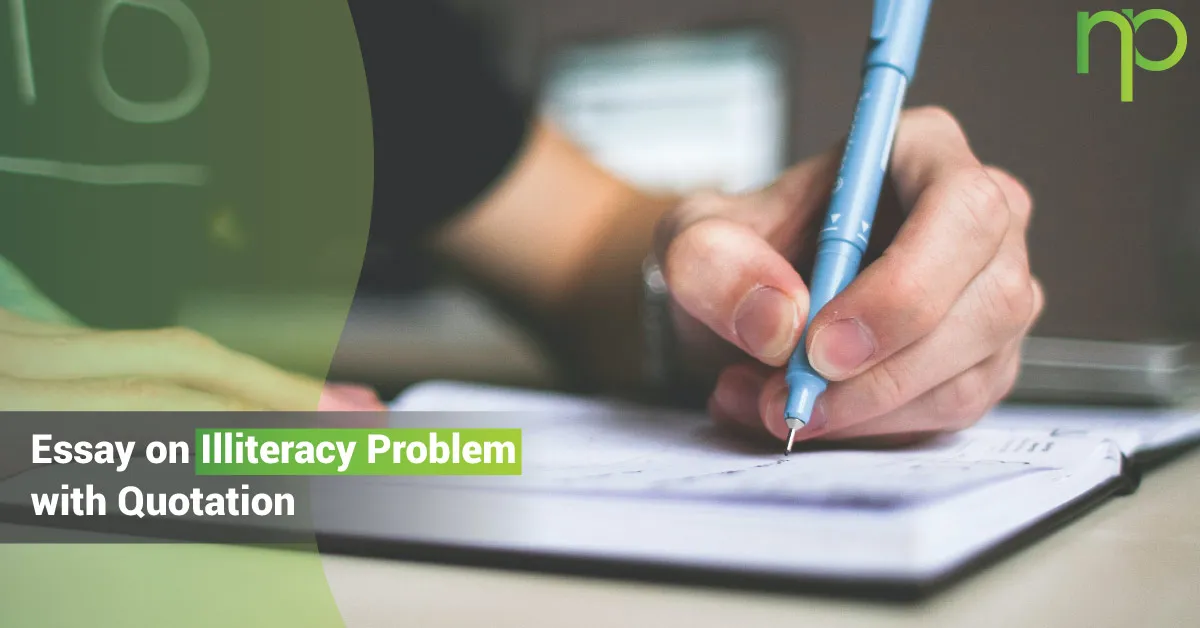
- January 2, 2024
- ubaidah khan
- 0
Illiteracy, a term that transcends the bare incapability to read and write, stands as a redoubtable challenge in the moment’s world. In this essay, we will claw into the intricate angles of the Illiteracy problem, exploring its global counteraccusations, root causes, and the combined efforts needed to annihilate it. Join me on this trip as we uncover the layers of Illiteracy, armed with the power of words and the wisdom of quotations.
The Global Illiteracy Scenario
To comprehend the enormity of the Illiteracy problem, let’s start with the figures. According to recent statistics, a stunning chance of the global population struggling with Illiteracy. still, these figures do not reveal the stark indigenous differences that live. While some regions boast high knowledge rates, others grapple with the patient challenge of ensuring education for all.
“Literacy is a bridge from misery to hope.” – (Kofi Annan)
Causes of Illiteracy
Illiteracy is a multi-faceted issue with roots deeply bedded in colorful socio-profitable factors. profitable insecurity, social inequalities, lack of access to education, and gender differences contribute to the perpetuation of ignorance. Understanding these causes is pivotal for formulating effective strategies to combat this pervasive problem.
“The only thing more expensive than education is illiteracy.” – (Benjamin Franklin)
Consequences of Illiteracy
The consequences of Illiteracy extend far beyond the incapability to read and write. It has a profound impact on profitable development, societal progress, and indeed health issues. As we navigate through these consequences, the urgency of addressing Illiteracy becomes apparent.
“Illiteracy is not bliss. Ignorance is not cool. The illiterate are not free.” – (Kofi Annan)
Government Initiatives
Governments play a vital part in addressing the Illiteracy problem. Through education programs, knowledge juggernauts, and the interaction of technology in education, nations can make significant strides toward creating a knowledgeable population. This section explores the enterprises taken by governments to attack ignorance head-on.
The golden door to freedom can only be unlocked by education as illiteracy is a trap of poverty, according to (Ellen J. Barrier)
Grass-roots
Beyond governmental interventions, grass-roots efforts also contribute significantly to the fight against Illiteracy. Non-governmental associations( NGOs) and community-ground programs play a pivotal part in reaching marginalized populations and fostering a culture of literacy.
Stories of Triumph Over Illiteracy
Amidst the challenges posed by Illiteracy, there are stories of triumph. particular narratives and success stories serve as lights of stopgap, demonstrating that with determination and access to education, individualities can overcome the impediment of ignorance.
Illiteracy and the Digital Divide
In our ultramodern world, technological knowledge is as pivotal as traditional knowledge. This section highlights the significance of bridging the digital peak to ensure that everyone has access to the tools and knowledge necessary for success in the 21st century.
A Global Perspective
International associations like UNESCO are at the van of global efforts to promote education for all. This section examines the enterprise and pretensions set by the global community to annihilate ignorance, aligning with broader sustainable development objectives.
Illiteracy in the Modern World
As the dynamics of the world continue to change, so do the challenges associated with illiteracy. Arising challenges, similar to the impact of rapid-fire technological advancements, bear adaptive and innovative results.
The Need for Collective Action
Addressing Illiteracy necessitates collaborative action. Nations, associations, and individualities must unite to produce comprehensive results. Commercial social responsibility also plays a pivotal part in using coffers for the lesser good.
“Illiteracy is a man-made disease and illiteracy is the enemy.” – Lyndon B. Johnson
Building a Literate Future
Empowering individuals through education is the key to breaking the cycle of illiteracy. This section explores strategies for erecting a knowledgeable future, emphasizing the significance of education as an abecedarian mortal right.
In conclusion, the illiteracy problem is a complex challenge that requires multifaceted results. By understanding its causes, consequences, and the various efforts in place, we can inclusively work towards a world where every existent needs to read, write, and thrive.